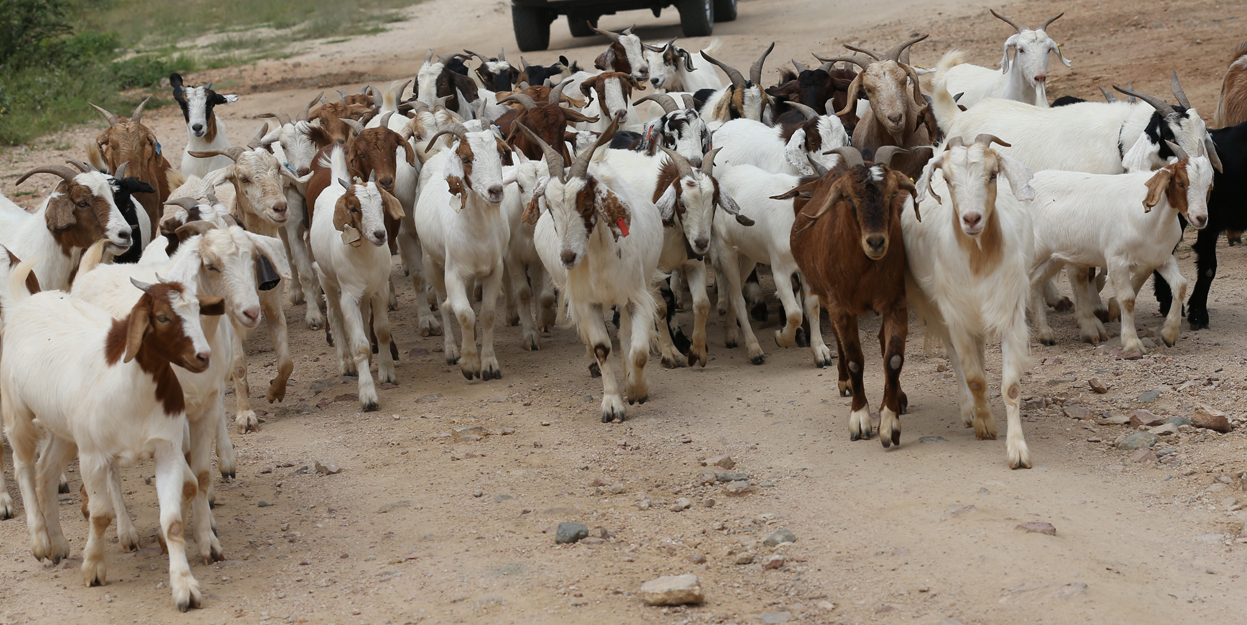Wet season challenge to farmers
12 Jan 2021
Each year farmers look forward to the rainy season for improvement in forage quantity and quality as well as access to water. But some years much rain come with adverse effects as it happened in the 2020/21 season.
The rain negatively affected farmers as a good number of animals died and the rains brought different diseases.
In an interview on Friday, senior scientific officer, smallstock, in the Ministry of Agricultural Development and Food Security, Mr Patrick Galekgathege said the season came with many challenges to smallstock farmers and that they needed to pay attention to several issues failing which they may end up losing animals.
Mr Galekgathege explained that hot and wet conditions provided a conducive environment for multiplication of internal and external parasites, adding that parasitic eggs hatched after a period of cold because they would remain dormant in winter and that larvae reappeared during early grazing.
He highlighted that sheep and goats that were not dewormed contaminated grazing with parasitic eggs. Mostly clinical infections in young ones, he said, occurred at six to 12 weeks of age when they started grazing.
He further explained that smallstock affected by internal parasites would show signs of diarrhea, loss of weight, anemia, potbelly in young ones and swelling under the lower jaw.
Mr Galekgathege, therefore, recommended that farmers deworm their animals regularly to reduce worm burden, adding that several products were available in the market such as albendazoles, ivermetins and levamisoles.
The drugs, he said, must be used correctly and cautiously to obtain effective response as well as to minimise anthelmintic resistance.
He noted that the ideal drug was one that had a broad spectrum of activity against immature or larval stages of parasites, round worms, tape worms and liver flukes.
Mr Galekgathege explained that it was important for farmers to develop a parasite control plan and to conduct fecal egg counts after treatment to check if the dewormer was working. He also advised farmers to consult local veterinarians for assistance.
He cited ticks and flies as some of the external parasites. Ticks, he said, spread and multiplied faster during the rainy season, and if not controlled, caused injuries to hoofs, sucked blood and transmitted tick-borne diseases such as heartwater and many others.
Pertaining to flies, Mr Galekgathege indicated that they also increased during the wet season, adding that some flies were just an inconvenience to the animals, but that there were those that were deadly such as the bot fly.
He explained that bot flies laid eggs on the nose of sheep and goats which developed into maggots or larvae inside the nasal cavity, noting that heavy infestation affected feeding patterns, growth and reproduction of animals.
Mr Galekgathege further explained that the continuous nasal irritation sometimes lead to breathing difficulties due to excessive mucus discharge from the nose and also affected the sheep’s ability to detect ewes ready to mate.
The drugs of choice, he said to treat sheep and goats against nasal bot were ivermectins as well as closantel, adding that products such as prodose orange were also effective because they contained closantel as an active ingredient.
As for ticks control, he said there should be regular dipping.
He pointed out that foot rot was also common during the wet season, adding that it was characterised by lameness because the foot tissues would be destroyed.
The proliferation of the problem, he said, was common in summer as it required a warm and moist environment for the infection to occur such as muddy kraals.
Affected animals, he said may be unable to breed and lose condition because they were unable to reach feeding grounds. He explained that treatment of sick animals must be directed towards temporary control of the disease by hoof trimming, application of topical treatment and avoiding muddy kraals, adding that it was easy and less expensive to prevent footrot than to treat it.
Mr Galekgathege highlighted that moldy feeds were also a challenge, noting that if water got into feed that was either stored or on the troughs they would develop molds and when fed to animals in a mold state they would bring bacteria and fungus.
Such feed, he said, should not be fed to animals as it predisposed them to cancer, adding that some feed mixtures contained urea and if exposed to contact with water over long periods it resulted in urea poisoning.
He advised farmers to store feeds in a dry place and to cover feeding troughs when it was raining.
But, all in all, the rainy season is a welcome period for every farmer as it relieves them from buying supplementary feeds for their animals. BOPA
Source : BOPA
Author : Thato Modiakgotla
Location : GABORONE
Event : Interview
Date : 12 Jan 2021






